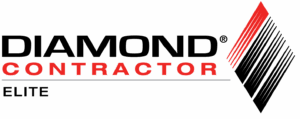Got a question about your heating, cooling, or water system? We’ve got answers.
Heating FAQs
What types of heating systems do you service and install?
At Smith River HVAC, we service, repair, and install most major types of home heating systems. This includes furnaces, boilers, heat pumps, ductless mini splits, and radiant heating systems.
What’s the difference between a furnace, boiler, and heat pump?
Furnace: Uses fuel or electricity to heat air, then distributes it through ducts and vents.
Boiler: Heats water or steam that travels through radiators, baseboards, or radiant floors.
Heat Pump: An energy-efficient system that transfers heat instead of creating it. It can heat your home in winter and cool it in summer, making it a great year-round option.
Do you work with gas, oil, and electric heating systems?
Yes! We service and install gas, oil, and electric heating systems.
Do you offer emergency heating repair?
Yes—we provide emergency heating repair services for our existing clients. If your home has no heat or a heating emergency, we offer priority scheduling to get your system restored as quickly as possible. While we cannot guarantee 24/7 availability, our team works hard to respond promptly when urgent situations occur.
What’s included in a heating system tune-up?
Our comprehensive tune-up service helps prevent breakdowns and ensures peak efficiency. A typical heating maintenance appointment includes:
- Cleaning burners, heat exchangers, and key components
- Testing safety controls and system performance
- Inspecting filters and replacing them if needed
- Checking fuel connections, ignition, and pilot lights
- Ensuring proper airflow and overall system efficiency
Cooling FAQs
What types of air conditioning systems do you install and service?
At Smith River HVAC, we provide expert air conditioning installation, repair, and maintenance for all major cooling systems. This includes central AC units, Mitsubishi Electric ductless mini splits, and heat pumps.
How often should my AC unit be serviced?
We recommend scheduling professional AC maintenance once a year, ideally in the spring before the cooling season begins.
Why is my AC making strange noises or smells?
Unusual noises or odors are often signs your system needs attention. Common causes include:
- Rattling or banging: Loose or broken components
- Hissing: Possible refrigerant leak
- Musty smell: Mold or mildew in the system or ductwork
- Burning odor: Electrical issues or overheating parts
If you notice any of these, it’s best to call for a professional AC inspection and repair before the issue gets worse.
How often should I change my AC filter?
For most homes, filters should be replaced every 1–3 months during peak cooling season. If you have pets, allergies, or live in a dusty environment, you may need to replace them more often. Regular filter changes improve airflow, increase efficiency, and protect your system from unnecessary wear and tear.
Why is water leaking from my AC unit?
Water leaks are usually caused by a clogged condensate drain line, frozen evaporator coil, or broken pump. While a small amount of condensation is normal, pooling water around your unit is not. A leak can lead to water damage or mold growth, so it’s important to schedule air conditioning repair right away.
Heat Pump FAQs
What is a heat pump and how does it work?
A heat pump is an energy-efficient system that provides both heating and cooling for your home. Instead of generating heat, it moves heat from one place to another. In the winter, it pulls heat from the outdoor air (even in cold temperatures) and transfers it indoors. In the summer, it works in reverse—removing heat from inside your home to keep it cool.
Can a heat pump heat and cool my home?
Yes! One of the biggest advantages of a heat pump is that it works as a two-in-one system. It provides efficient heating in the winter and reliable cooling in the summer, which means you don’t need separate systems for each season. Many homeowners choose heat pumps for their year-round comfort and energy savings.
How often should my heat pump be serviced?
To keep your system running at peak efficiency, your heat pump should be serviced twice a year—once in the spring before cooling season and again in the fall before heating season. Regular maintenance helps extend the life of your system, prevent costly breakdowns, and ensure maximum comfort in every season.
Why is my heat pump not producing enough heat in winter?
It’s normal for a heat pump to deliver air that feels cooler than what comes from a furnace, since it transfers heat rather than generating high temperatures. However, if your home isn’t staying warm enough, common causes include:
- Dirty air filters restricting airflow
- Low refrigerant levels or a leak in the system
- Blocked outdoor unit (snow, ice, or debris around the coil)
- Malfunctioning thermostat or controls
- Defrost cycle issues, causing ice buildup on the outdoor unit
In very cold weather, most heat pumps rely on a backup heat source, such as electric resistance heat or a furnace, to maintain comfort. If your system isn’t keeping up, it’s best to schedule a professional heat pump inspection and repair to restore efficiency and comfort.
Water Heater FAQs
What’s the difference between a tank and tankless water heater?
- Tank water heater: Stores hot water in a tank and keeps it heated until you need it. This is the most common type of water heater and works well for families with higher hot water demands.
- Tankless water heater: Heats water on demand, so you only heat what you use. This provides endless hot water, saves space, and can be more energy-efficient over time.
Our team can help you decide which option is best for your home and provide expert water heater installation.
Do you service both gas and electric water heaters?
Yes—we provide repair, installation, and maintenance for both gas and electric water heaters, including traditional tank models and modern tankless systems. No matter your setup, our technicians have the experience to keep your hot water running reliably.
Why is my water not getting hot enough?
A few common reasons your water may not be heating properly include:
- Sediment buildup in the tank reducing heating efficiency
- Malfunctioning thermostat or heating element
- Undersized water heater for your household needs
- Gas supply or pilot light issues (for gas units)
If your water isn’t hot enough—or runs out too quickly—it may be time for professional water heater repair or, in some cases, a system upgrade.
General HVAC FAQs
Do you work on geothermal systems?
No, we do not service or install geothermal systems. Our team specializes in furnaces, boilers, heat pumps, ductless mini splits, central AC, and traditional HVAC systems. If you’re unsure what type of system you have, we’d be happy to help identify it and recommend the best service options.
What is a SEER rating and why does it matter?
SEER (Seasonal Energy Efficiency Ratio) measures how efficiently an air conditioning or heat pump system operates over a typical cooling season. The higher the SEER rating, the more energy-efficient the system is. Choosing a unit with a higher SEER rating can reduce your utility bills and improve home comfort.
How can I improve my indoor air quality?
We offer several solutions to help improve indoor air quality, including:
- High-efficiency air filters
- Whole-home air purifiers
- Humidifiers and dehumidifiers
- Proper duct cleaning and sealing
Better air quality reduces allergens, dust, and pollutants, making your home healthier and more comfortable.
What’s the difference between a programmable and smart thermostat?
-
Programmable thermostat: Allows you to set heating and cooling schedules to match your routine, saving energy when you’re not home.
-
Smart thermostat: Takes it a step further by learning your habits, adjusting automatically, and connecting to Wi-Fi so you can control your HVAC system from your smartphone or voice assistant.
Can I zone my HVAC system to control temperatures in different rooms?
Yes! With zoned HVAC systems, you can divide your home into separate areas, each with its own thermostat. This allows you to heat or cool only the spaces you’re using, improving comfort and reducing energy costs. Zoning can be added to many central systems or built into ductless mini split installations.
Are there any systems you don’t service or install?
Yes—while we handle a wide range of heating and cooling systems, there are a few we do not work on. This includes:
- MR. Cool systems
- Geothermal systems
We will work on these types of units but we will not install them:
- Self-contained units or equipment purchased privately by the homeowner


